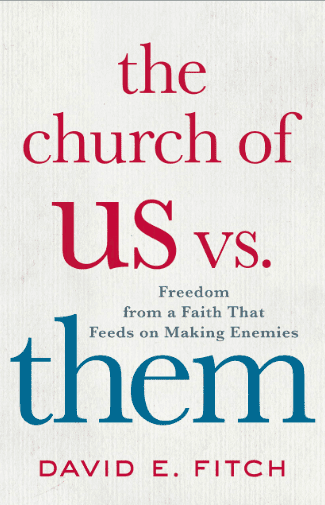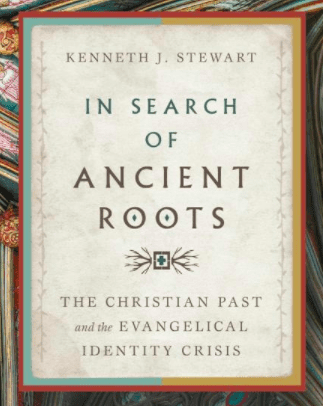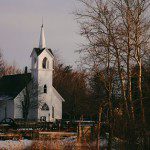 I recently received, courtesy of the publisher, a copy of the new book The Anointed: Evangelical Truth in a Secular Age by Randall Stephens, an associate professor of history at Eastern Nazarene College and Karl Giberson, formerly a professor of Physics at Eastern Nazarene. Giberson has now moved on to concentrate on a number of writing projects. In this book Stephens and Giberson examine several different case studies to explore the manner in which “America’s populist ideals, anti-intellectualism, and religious free market, along with the concept of anointing – being chosen by God to speak for him like the biblical prophets” influence broad ranges of evangelical and fundamentalist beliefs.
I recently received, courtesy of the publisher, a copy of the new book The Anointed: Evangelical Truth in a Secular Age by Randall Stephens, an associate professor of history at Eastern Nazarene College and Karl Giberson, formerly a professor of Physics at Eastern Nazarene. Giberson has now moved on to concentrate on a number of writing projects. In this book Stephens and Giberson examine several different case studies to explore the manner in which “America’s populist ideals, anti-intellectualism, and religious free market, along with the concept of anointing – being chosen by God to speak for him like the biblical prophets” influence broad ranges of evangelical and fundamentalist beliefs.
In chapter 2 moves from The Answer Man to The Amateur Christian Historian. The topic is history – specifically American history. The question is simple:
Was the US founded as a Christian nation? If so what does this mean?
In this chapter Stephens and Giberson sketch a movement that started in the fifties or a bit earlier, perhaps with reaction to the communist scare, but building steam in the 70’s, 80’s, and 90’s, that recasts the foundations of American history with a divinely ordained Christian purpose accompanied by a culture war motif and a clarion call to reclaim America for Christ.
Where you taught as you grew up that we need to reclaim America for Christ?
In keeping with the central theme of their book, Stephens and Giberson discuss the role that several individuals have had in casting a story of America with Christian roots, devout Christian roots. Peter Marshall and David Manuel, Francis Schaeffer, Rousas John Rushdoony, D. James Kennedy, and David Barton were or are significant players in this movement. The story they’ve told has had significant influence within segments of evangelicalism and has impacted the political face of evangelicalism.
Peter Marshall and David Manuel teamed up to write a history of the US where God played a central role.
Their book, The Light and the Glory (1977), chronicled the nation’s lofty past. Like the Israel of the Old Testament, America was in a covenant with God. If Christians could only see that clearly, they could act accordingly. America’s history was a divine drama, as good and evil constantly played off each other. (p. 76)
Marshall considered the contention that most of the founding fathers were deists a secularist lie and many of the calamities falling on the US, including Hurricane Katrina, were reflections of the anger of God against a country turning from its divine purpose.
Francis Schaeffer called on evangelicals to reclaim America for Christ.
The nation was founded on the principles of the Bible and the Reformation, the elder Schaeffer declared in A Christian Manifesto (1981), a battle plan for the Christian Right. (p. 78)
D. James Kennedy looked to the Christian foundations of America. Kennedy saw the hand of God in the founding of America by Pilgrims and Puritans rather than Catholics.
Through General Washington God had orchestrated America’s victory over British tyranny. “America would be a free nation,” wrote Kennedy, “and it would be that Puritan and evangelical form of Christianity that would give birth to our nation.” (p. 82)
In 1996 Kennedy established the Center for Reclaiming America for Christ.
David Barton and his Wallbuilder’s organization has played a key role as well … and still does. With intent to rebuild America on the foundation of her Christian roots, he writes books (Original Intent is a particularly influential example), develops curricula for public, private, and home schools, and speaks widely. Stephens and Giberson report that he averages 250 public lectures a year. He has the ear of politicians and conservative leaders at the local, state, and national level.
What do the historians say? Marshall, Schaefer, Kennedy, and Barton are all amateur historians with a message that plays well for many audiences. Most historians, including Christian historians, have a different take on the evidence. They will agree, and even many secular historians will admit, that textbooks do underplay the role of religion in early American life. Mark Noll, George Marsden, and Nathan Hatch are important names here. Especially Mark Noll.
[Intellectual historian Mark] Lilla praises the serious scholarship of Noll and another historian, George Marsden, who “counter the tendency of historiography to rummage through the past for anticipation of our secular, egalitarian, multicultural present.” Their work is a “useful corrective and reminds us that the role of religion in American life was large and the separation of church and state less clear than today.” (p. 90)
John Fea could be added to the list above. Stephens and Giberson mention Fea, but don’t refer to his very recent book Was America Founded As a Christian Nation?: A Historical Introduction. This book addresses the title question, laying out evidence for all to evaluate. The question is complex, best answered, perhaps, both yes and no.
The careful work of Noll, Marsden, and Fea stands in stark contrast to the claims of Marshall, Kennedy, and Barton and in equally stark contrast to the popular works promoting a revised humanist founding for the US. Paraphrasing Noll, Stephens and Giberson note that “[t]he image of Revolutionary America as a God-free utopia of enlightened freethinkers is as distorted as the counterview of a theocratic founding.” (p. 93)
Yet Barton sells tens of thousands, even hundreds of thousands of books. He is, along with Peter Marshall and Francis Schaeffer, an anointed authority in American evangelicalism.
America’s Christian roots. Stephens and Giberson conclude the chapter.
Ideas about America’s sacred roots, its covenant with God, or its providential place in world history seem as much a part of its enduring character as frontier legends and stories of the railroad. … Serious professional historians, both inside and outside evangelicalism, cannot help but be troubled by the uncritical approach of Christian popularizers and their attempt to force the evidence into a predetermined framework. The historical work of Barton, Marshall, Schaeffer, and Kennedy is simplistic and free from the ambiguities and complicated moral questions that make the more serious work of evangelical historians in the academy so dynamic and interesting. Such historians will not have Barton’s appeal. … Few will appear on Fox News and they certainly will not head up media empires.
For millions of America’s evangelicals, a comforting story – a myth – about how “your” country was founded by people like you is too good not to be true. (p.96)
I must admit that, with other concerns occupying most of my time, I have been only vaguely aware of this trend to cast American history in a framework of divine establishment and divine calling. I’ve always more or less accepted that the founders were ordinary people and sinners much like the rest of us and like the Europe they left behind, motivated by power, money, and gain; the problems of day-to-day life; and on occasion higher, more altruistic ideals. But the ideals were only a part of the picture – and not always specifically Christian. The history of our country seems to demonstrate this if nothing else.
Is this movement a real presence?
If so, why is it accepted so readily within American evangelicalism?
I asked on the last post why Ken Ham was believed – I’ll ask the same question here.
Why is David Barton believed?
If you wish to contact me directly you may do so at rjs4mail[at]att.net.
If interested you can subscribe to a full text feed of my posts at Musings on Science and Theology.











